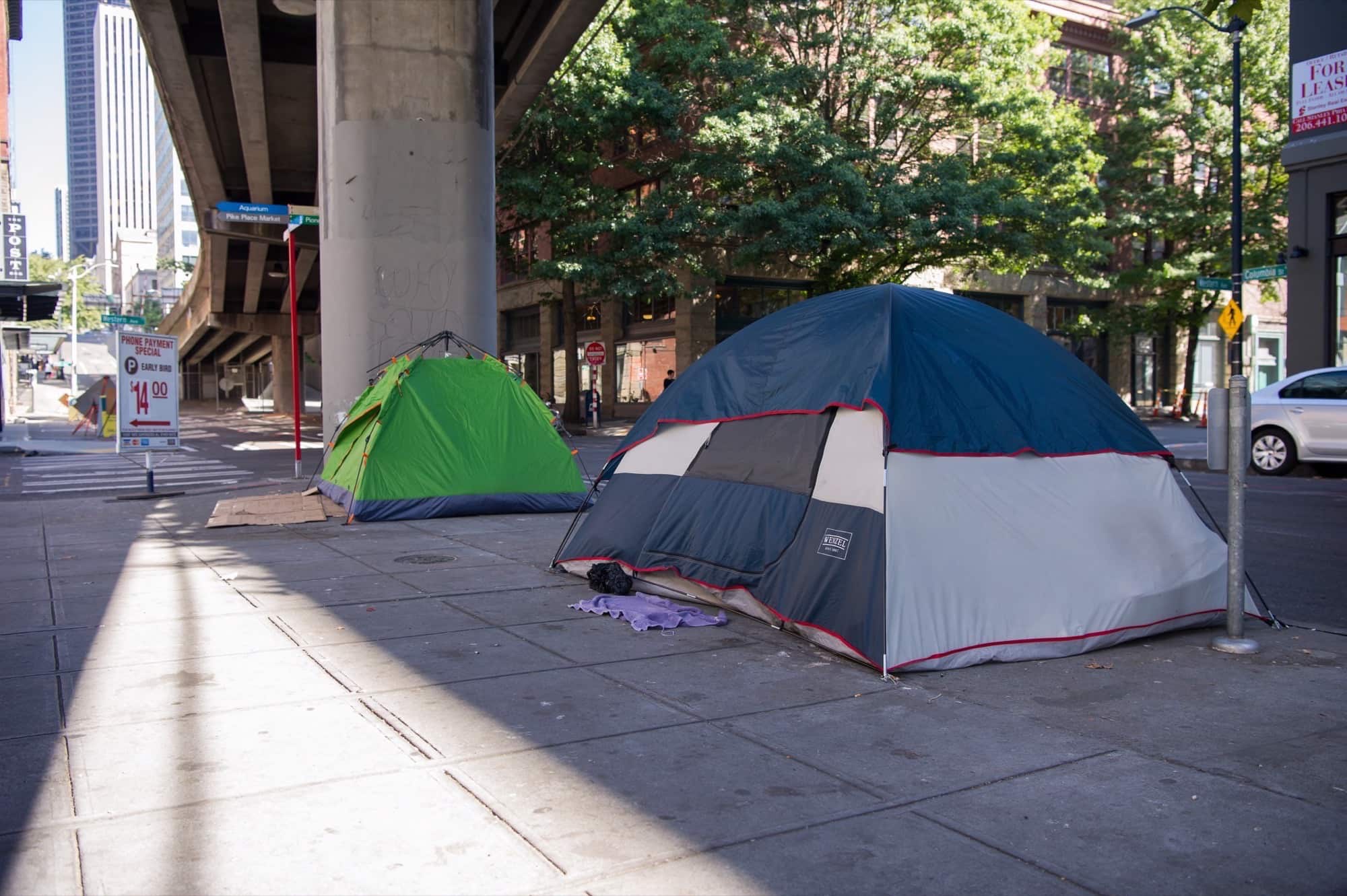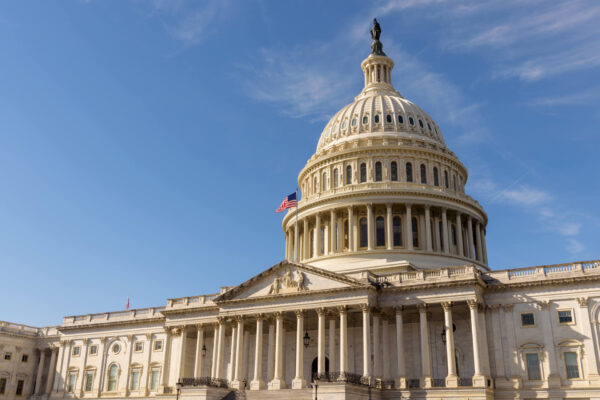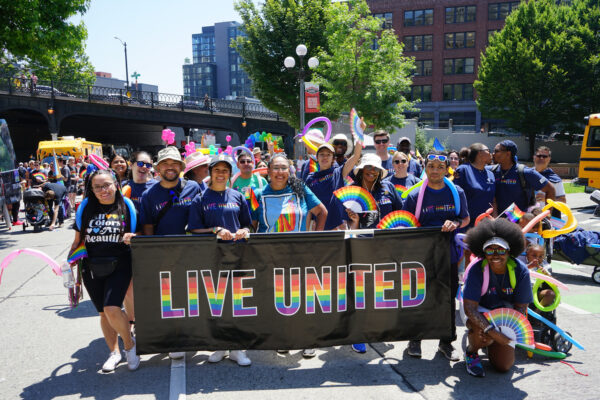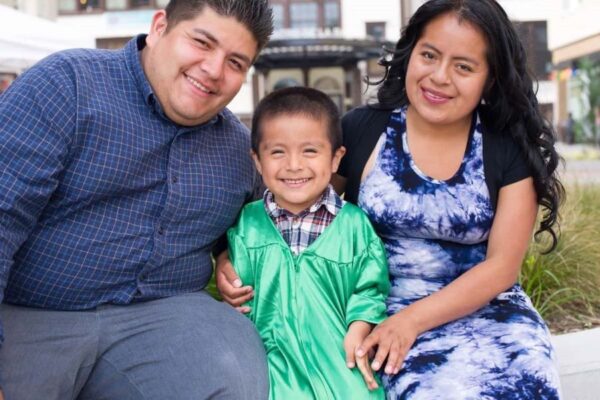United Way’s point of view: Homelessness FAQ
Homelessness is a crisis in our community—too many people are living outdoors without a safe place to call home. With your help, we’re working hard to make a difference in the lives of thousands as we take a stand against homelessness.
Meanwhile, we get lots of questions about the homelessness crisis. We know these questions are no different than ones that you likely encounter with co-workers, friends and family. Here’s our take on a few:
Do we need more shelters?
Yes—we need more and better shelters. When it comes to emergency shelters, we need two things:
- To make the existing system more effective and efficient. This means enhanced services: so that, in addition to a place to sleep at night, people are connected to housing. It also means converting overnight-only shelters to models that allow people to stay 24/7 in order to establish stability, store their possessions and offer more services for long-term success.
- Additional shelter beds throughout the county so that people can find shelter where they are and when they need it. This includes low-barrier shelters that allow people to bring their pets and partners—and support people who are abusing substances.
Aren’t we already spending a lot as a community on this issue?
Yes, but more people are becoming homeless than we can house. Relative to the size and wealth of our community we are not investing resources at the scale of the problem.
In King County, city, county and nonprofit partners spend millions each year. However, it has not been enough to stem the tide and we are seeing more people experiencing homelessness for the first time. There has been a steady reduction in funding from the federal government since the 1980’s. Today just 1 in 5 people who need and are eligible for federal housing assistance actually receive it, because the funding is woefully inadequate.
As an example, last year roughly 75 veterans moved from homelessness to housing per month; but about 150 veterans became homeless each month.
In 2016, a community-wide study was commissioned and made strong recommendations to improve the current system. Much progress has been made on implementing these recommendations and as a community, we’re on track to house 7,000 households who are experiencing homelessness this year. However, this study did not take into account the need for prevention services, more affordable housing driven by our extraordinary economy or the mental health and substance abuse needs of many people currently living homeless in our communities.
What does United Way think about tiny houses?
We are all for housing that is safe and sanitary—with electricity, running water and bathroom facilities. Tiny houses that meet these criteria are one of the variety of housing solutions that help address the homelessness crisis.
We’re also all for increasing the availability of affordable housing, encouraging shared housing, and developing innovative micro-housing including modular housing and accessory dwelling units like The Block Project.
What does United Way think about illegal encampments?
We are not supportive of illegal encampments. Unauthorized encampments are often inhumane and present health and safety hazards for the people living in them and for the public in general.
Sweeps—removing unauthorized encampments—reduces their impact on the surrounding community but also disrupts the lives of the already vulnerable people living in them. Illegal encampments run counter to our belief that focusing on income and housing will make the most impact on our county-wide homeless crisis.
We believe that low-barrier shelters – like the Navigation Center – can be a resource for people who have not been successful in the traditional/emergency shelter system.
What does United Way think about legal encampments?
For now, legal encampments have become an important part of the mix of how we’re addressing the homelessness crisis.
For some unsheltered people, there are significant barriers to transitioning to indoor shelter. While United Way doesn’t fund sanctioned encampments, we believe that they offer a safer alternative that can help stabilize the person before transitioning indoors.
Sanctioned encampments provide respite, safety, access to basic hygiene facilities, and access to support services to help people get out of homelessness. Encampments should be considered a temporary solution.
Do we have enough affordable housing?
No. Affordable housing is its own crisis in our community, but it is no excuse for having 5,000 people living without shelter. The crisis requires innovative solutions—every day people are moving out of homelessness through programs like Streets to Home.
What does United Way think about injection/consumption sites?
We should first say that we certainly know not everyone who is homeless is using opioids and not everyone who is using opioids is homeless.
That said, we think safe-injection/consumption sites have the potential to save lives. Given the lack of treatment options in our community, they are better than nothing.
Addressing the opioid crisis requires a variety of strategies including prevention, treatment and safe consumption. The opioid epidemic isn’t just a Seattle issue and the response can’t be either.
United Way does not fund injection sites; instead our investments are focused on income through programs like Jobs Connect and housing through programs like Streets to Home.
Do you support the head tax?
As a nonprofit, we’re not part of this decision—that’s left to the city council and the mayor-but the business community and government need to come together to find solutions because more money is needed to solve this crisis.





Comments